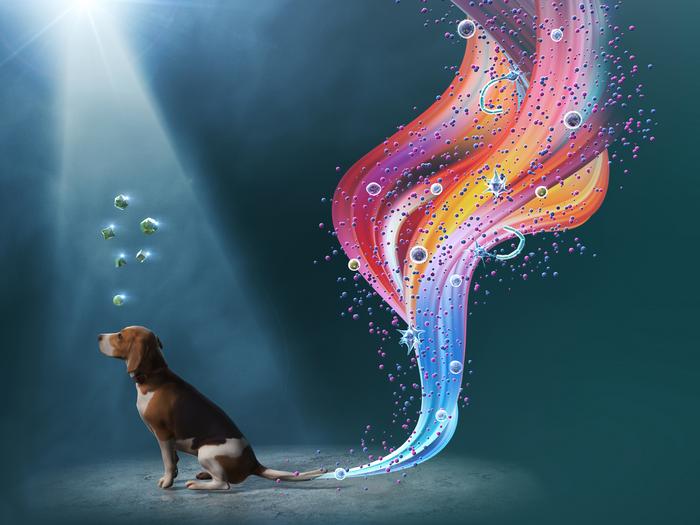Osaka, Japan – Dog owners may need to learn to appreciate their best friend’s urine. Scientists at Osaka Metropolitan University have devised an efficient, non-invasive, and pain-free method to reprogram canine stem cells from urine samples, bringing furry companions one step closer to veterinary regenerative treatment.

Credit: Shingo Hatoya, Osaka Metropolitan University
Osaka, Japan – Dog owners may need to learn to appreciate their best friend’s urine. Scientists at Osaka Metropolitan University have devised an efficient, non-invasive, and pain-free method to reprogram canine stem cells from urine samples, bringing furry companions one step closer to veterinary regenerative treatment.
Induced pluripotent stem cells (iPSCs) have been widely employed in studies on human generative medicine. With the growing importance of advanced medical care for dogs and cats, there is an expectation that new therapies utilizing iPSCs will be developed for these companion animals, just as they have been for humans. Unfortunately, canine somatic cells exhibit lower reprogramming efficiency compared to those of humans, limiting the types of canine cells available for generating iPSCs. IPSC induction often involves using feeder cells from a different species. However, considering the associated risks, minimizing xenogeneic components is often advisable, signifying the need to improve the efficiency of reprogramming various types of canine cells in dogs without using feeder cells.
A research team led by Professor Shingo Hatoya and Dr. Masaya Tsukamoto from the Graduate School of Veterinary Science at Osaka Metropolitan University has identified six reprogramming genes that can boost canine iPSC generation by about 120 times compared to conventional methods using fibroblasts. The iPSCs were created from urine-derived cells using a non-invasive, straightforward, and painless method. Additionally, the researchers succeeded in generating canine iPSCs without feeder cells, a feat that had been impossible until now. The team aims to disseminate their findings in the global research community, contributing to advances in regenerative medicine and genetic disease research in veterinary medicine.
“As a veterinarian, I have examined and treated many animals,” explained Professor Hatoya. “However, there are still many diseases that either cannot be cured or have not been fully understood. In the future, I am committed to continue my research on differentiating canine iPSCs into various types of cells and applying them to treat sick dogs, hopefully bringing joy to many animals and their owners.”
Their findings are set for publication in Stem Cell Reports on December 21, 2023.
###
About OMU
Osaka Metropolitan University is the third largest public university in Japan, formed by a merger between Osaka City University and Osaka Prefecture University in 2022. OMU upholds “Convergence of Knowledge” through 11 undergraduate schools, a college, and 15 graduate schools. For more research news, visit https://www.omu.ac.jp/en/ or follow us on Twitter: @OsakaMetUniv_en, or Facebook.
Journal
Stem Cell Reports
DOI
10.1016/j.stemcr.2023.11.010
Method of Research
Experimental study
Subject of Research
Animals
Article Title
Generation of canine induced pluripotent stem cells under feeder-free conditions using Sendai virus vector encoding six canine reprogramming factors
Article Publication Date
21-Dec-2023
COI Statement
This study was also funded by Anicom Specialty Medical Institute Inc. Taro Ayabe and Kei Watanabe are employees of Anicom Specialty Medical Institute Inc.




